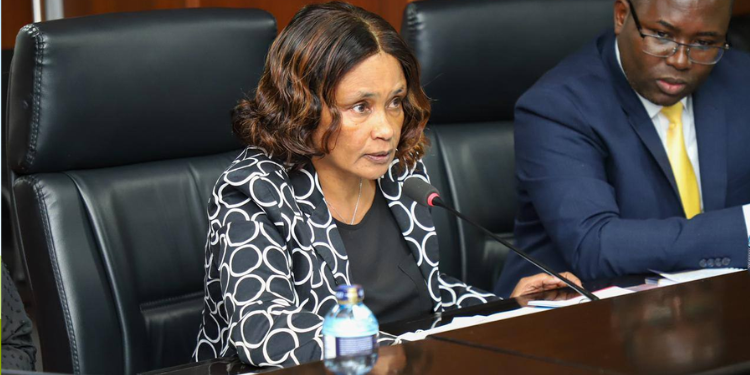More often than not, campus life is perceived as a stage where one pursues academic goals while enjoying the freedom that comes with youth. But in the midst of those lecture halls and school cafeterias, students silently endure personal and academic pressure, along with the uncertainties that come with it. Across various institutions of higher learning in Kenya, mental health challenges among students are skyrocketing. According to a study conducted at Pwani University in 2025, close to 35% of the learners reported symptoms of mental health-related issues such as psychosis and anxiety.
Campus Pressure and Mental Health
Additionally, mental health issues among students stem from a wide range of causes, like academic overload and pressure, financial constraints, family and leadership responsibilities, and more so for working students. Some of the institutions have, however, made efforts to support students’ mental well-being through various programs.
Also Read: Youth, Unemployment and Mental Health. The Hidden Crisis
Elvis, an undergraduate student, stated that his main sources of pressure on campus are pressure to fit in with friends, academic pressure, and leadership demands.
“Sometimes when I look at my peers, I get the urge to try to be like them. Leadership roles are also an uphill task for students, as they require being both intentional and diligent, which can be overwhelming at times. Having so much school work from exams, projects, or CATs at the same time sort of throws me off balance at times,” he stated.
According to Ms. Tiziana Gori, a university lecturer, she has witnessed signs of stress among some of her students in different forms.
“Some of the scenarios include physical and emotional burnout, reduced participation in class activities, and a drop in academic performance.” To support such students, she undertakes some mechanisms that have been effective. “I embark on building confidence among them, fostering a conducive learning environment, initiating a private talk with them to encourage them to open up, and if the matter is too extreme, involve the departmental head or the parents,” she said.
Silently struggling
A psychology student who doubles up as a peer counsellor alludes that many students fear speaking out when facing mental health issues. A lot of those who have sought his counsel have mental health concerns cutting across their personal and academic lives.
“Some of the biggest concerns they come with are stress, balancing personal and school life, and feeling overwhelmed by expectations either from themselves or others. From where I sit, a lot of my peers struggle with anxiety and depression, but are uncomfortable talking about them. Some also lack a support system and feel like they are alone in their struggles,” he stated. Furthermore, he encouraged students to be more open and highlighted the importance of mentors to curb isolation.
Coping
To help students cope with these mental health struggles, universities and colleges have undertaken activities such as establishing campus counselling centres, hosting school fun days, training peer counsellors, and conducting mental health awareness drives.
Daystar University, for instance, has invested heavily in prioritizing students’ mental well-being through its Nuru Counselling Centre, which is run by both mental health professionals and peer counselors and regularly hosts free mental health awareness events.
For students like Elvis, more mental health sensitization programmes, rehabilitation centres, and more concern from parents and institutions of higher learning would be a great way to help students cope.
Also Read: One in Five Kenyan Teens at Risk of Mental Health Disorders – Report
In line with that, Ms. Tiziana is of the opinion that continuous student mentorship, emotional literacy lessons, and constantly encouraging students to seek mental health assistance are the way to go.
In conclusion, it is clear that mental health remains a major challenge for many students on campus. While academic pressure, personal expectations, and social demands continue to weigh heavily on learners, the efforts made by institutions, lecturers, and peer counsellors offer hope. With more awareness, open conversations, and stronger support systems, students can better cope with these pressures and thrive both academically and personally.
This article was written by Peter L. Muriu and Mary Githuku. The views expressed in this opinion piece are the authors’ own and do not represent The Kenya Times’ editorial position.
Follow our WhatsApp Channel and X Account for real-time news updates.





















![Billions Each Top Kenyan Bank Has Made So Far In Profits This Year [List] Q3 2025 Results For Equity, Kcb, Co-Op, Absa And Other Banks]( https://thekenyatimescdn-ese7d3e7ghdnbfa9.z01.azurefd.net/prodimages/uploads/2025/11/C0-OP-KCB-Equity-Absa-360x180.png)



















































